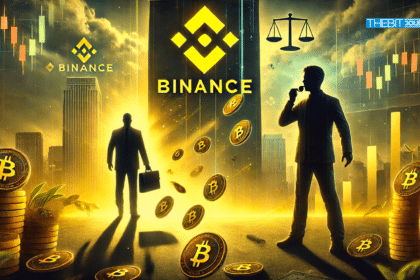The Nigerian government’s attempts to clamp down on funds linked to the #EndBadGovernance protests have faced unexpected resistance. Despite assertions of a successful freeze on assets, some Nigeria crypto wallets associated with the movement remain active, revealing the challenges authorities encounter in the realm of digital finance.
In a recent Council of State meeting led by President Bola Tinubu at the Aso Rock Villa in Abuja, National Security Adviser Nuhu Ribadu announced a significant victory. Ribadu claimed that the government had frozen a substantial sum of 83 billion Nigerian naira ($52 million) across various forms of currency. This included 78 billion naira ($50 million) in cryptocurrency, supposedly stored in four distinct wallets, and 4 billion naira ($2,540) in fiat, linked to political figures from multiple states such as Abuja, Kano, Kaduna, and Katsina.

However, the government’s confidence in their success has been met with skepticism. Investigations by local media have revealed inconsistencies in the reported figures and the current state of these Nigeria crypto wallets. Contrary to the government’s statements, evidence suggests that some of these wallets are still operational, calling into question the effectiveness of the government’s freeze.
For example, one wallet reportedly containing 1.5 million naira ($967) was found to hold only 270,796 naira ($172). Similarly, another wallet, claimed to have 698 million naira ($443,512), showed a balance of only 367 million naira ($233,574) upon closer examination. These discrepancies have fueled doubts about the government’s control over these funds and whether the wallets are as frozen as claimed.
Moreover, these Nigeria crypto wallets, identified as belonging to the cryptocurrency exchanges KuCoin and MEXC, have continued to see activity. One particularly notable transaction involved the movement of 78 million naira ($50,000) to an unknown wallet, which was then quickly transferred to another address. The identities of those controlling these wallets remain unknown, and it is unclear whether the exchanges have been cooperative with Nigerian authorities.

This situation underscores the difficulties that governments face when trying to impose financial controls on cryptocurrencies. Unlike traditional banking systems, the decentralized and pseudonymous nature of blockchain technology makes it difficult to enforce freezes and track transactions. Although the Economic and Financial Crimes Commission (EFCC) has been probing these funds on suspicion of money laundering and terrorism financing, the continued activity in these Nigeria crypto wallets raises concerns about the government’s ability to effectively manage and freeze digital assets.
A crypto forensic expert, speaking to local media, pointed out that while governments can request cooperation from exchanges, such cooperation is not always forthcoming. Exchanges may only comply if presented with a robust legal case, and even then, they may push back if they believe the request is unwarranted.
Nigeria Crypto Wallets: Traditional Finance vs DeFi
This situation also highlights the broader regulatory hurdles that governments face in the digital age. The disconnect between the Nigerian government’s claims and the reality on the blockchain reveals the complex relationship between digital finance and state control. As global authorities strive to regulate cryptocurrencies, the Nigerian experience offers a cautionary tale of the difficulties in imposing traditional financial controls on a decentralized financial system.

During the #EndBadGovernanceInNigeria protests, cryptocurrency emerged as a vital tool for organizers and supporters, allowing them to bypass conventional financial restrictions. This has not only highlighted the potential of digital currencies but also sparked discussions about the need for regulatory reforms that could benefit both the financial sector and the wider economy.
The ongoing challenges surrounding the Nigeria crypto wallets tied to the protests illustrate the complexities of regulating digital finance. Addressing these challenges will require a deep understanding of the technology and a cooperative approach with the industry to ensure transparency and accountability in this evolving financial landscape.
Stay informed on the latest developments in the cryptocurrency world with TheBITJournal





























